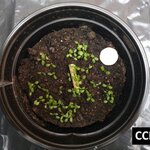
This article is being shared in the media widely as a report that even common birds like blue tits and great tits risk extinction. But that can’t be what is meant. What did it really say?
It is notable enough to be a paper in Nature. But it seems to be more of a specialist paper for expert researchers in the topic area and has surely been misrepresented in the media reports. It is not challenging the IUCN results for these species which list them as being of least concern. The Great Tit for instance occurs in diverse habitatas all the way from the tropics to above the Arctic circle and its…







